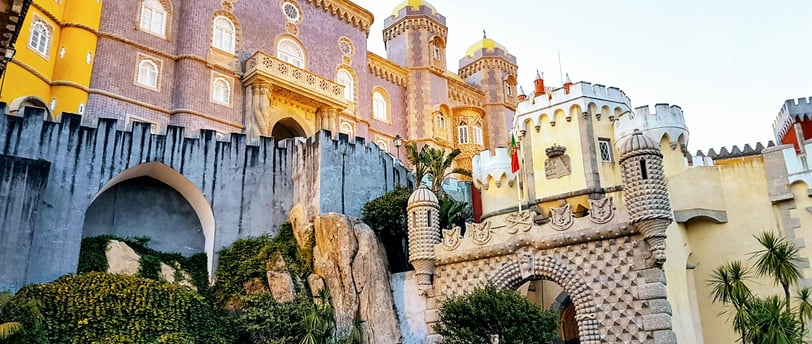Living In Portugal
What it's like to live in Portugal: Key things to know before moving
5/11/20253 min read


Wondering what is it like to live in Portugal? Find out all about the cost of living, paperwork, safety, and more.
Would you like to live in Portugal?
Many people share your dream. Over the last few decades, this charming country has become one of the most popular destinations in Europe for relocating, especially among digital nomads, remote workers, and retirees from northern European countries. Several factors have contributed to the rise of Portugal as a desirable place to live, which we’ll explore in this article.
What is it like to live in Portugal?
If you’ve traveled to Portugal, you’ve likely already experienced some of the great pleasures of living in this country, such as its beaches, pleasant climate, cuisine, landscapes, and historical heritage.
But going there as a tourist is obviously not the same as living there, where other factors come into play—like work, healthcare, cost of living, safety, and residency paperwork.


Cost of living in Portugal
Undoubtedly, one of the main reasons Portugal is such an attractive country to move to is its cost of living. Being one of the cheapest countries in Europe—and the most affordable in Western Europe—Portugal is appealing to many people who can work from anywhere without relying on the Portuguese labor market.
The same applies to retirees from countries with stronger economies, who prefer to live somewhere their pensions stretch further while also enjoying the many other benefits Portugal offers.
For example, a studio apartment in Lisbon, the most expensive city in Portugal, costs around €1000 per month, but rents are cheaper in cities like Braga, Aveiro, or Coimbra. The most commonly used website for rentals is idealista.pt. Other popular websites include OLX.pt, Imovirtual.com, and SmartConsulting.
Utility bills average between €50 and €150 per month. Grocery shopping in supermarkets or local markets is quite affordable as well. A meal at a simple restaurant costs between €8 and €15.
Climate
Among Portugal’s many benefits are its pleasant climate throughout most of the year, in most of the country, and its beaches, with a coastline stretching from north to south.
If you visit the Algarve region, located in southern Portugal, you’ll often hear both Portuguese and English spoken due to the large number of British residents who choose to live there. The sunny days and seaside lifestyle are a major draw.


Communication
Speaking of languages, unlike other countries like Italy or France, the Portuguese are more enthusiastic about speaking other languages, especially English and Spanish, so you won’t have so much trouble finding people who can communicate in another language.
Naturally, it’s up to you to learn their language, but this makes communication easier in your early days.
Safety
Safety is another positive aspect of living in Portugal, as it is one of the safest countries in the world. According to the Global Peace Index, Portugal frequently ranks in the top five, thanks to its low crime rates, political stability, and a generally peaceful society. Violent crime is rare, and most incidents are limited to petty theft, such as pickpocketing in tourist-heavy areas.
Working in Portugal
Regarding the labor market, Portugal has seen a significant economic resurgence in recent years, with unemployment dropping from 17% in 2014 to the current 7%.
As expected, the low cost of living is accompanied by salaries that are among the lowest in the region. To give you an idea, the average salary in Portugal is only €22,900 annually. For this reason, moving there makes more sense for those with remote jobs, but not as much for people seeking local employment.
As it is the case worldwide, there is high demand in the technology sector, with salaries above the average.
